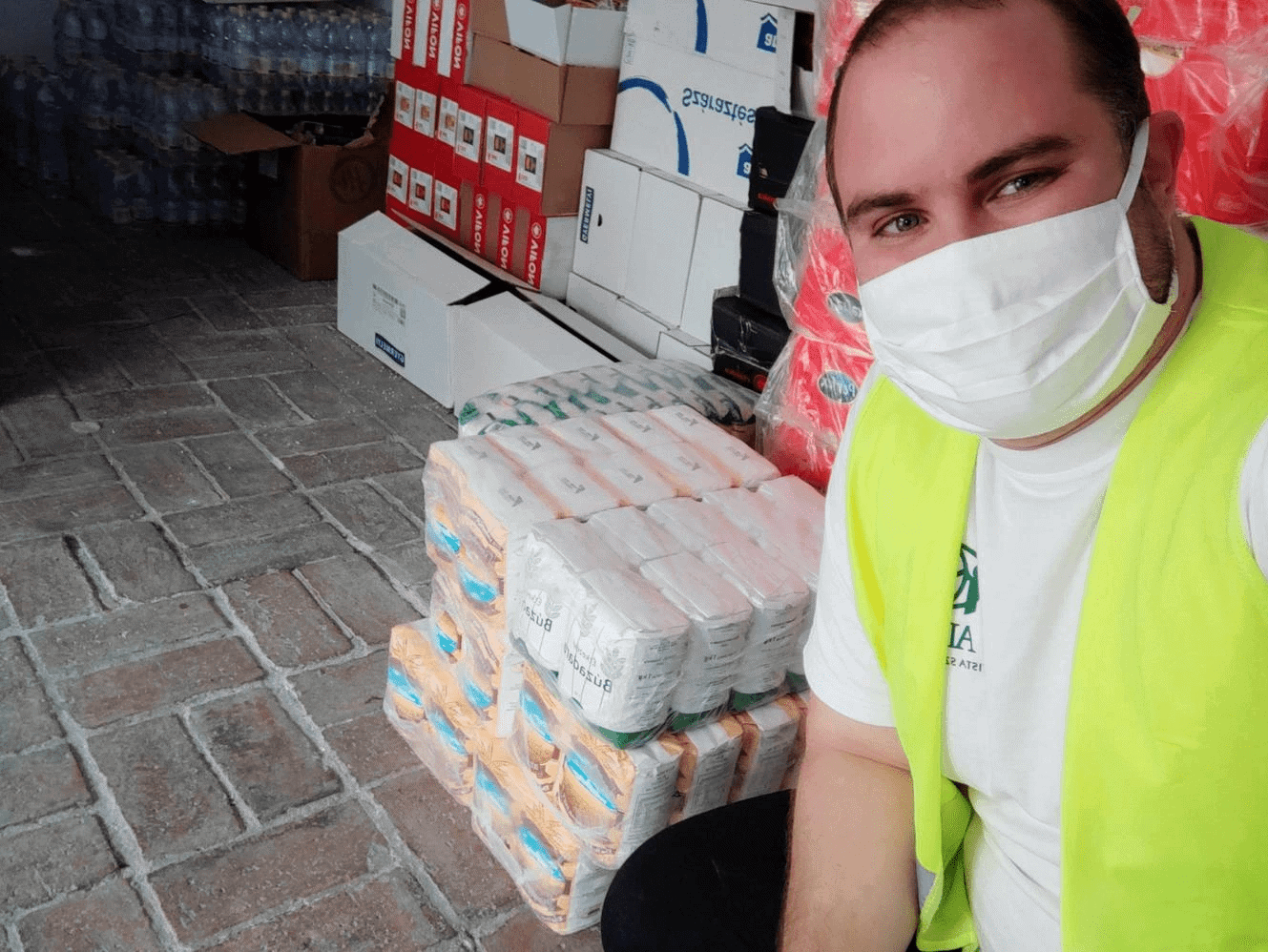
During the COVID-19 pandemic, more than 560 low-income families received food packages and 24 families received laptops for online education thanks to projects sponsored by the Adventist Development and Relief Agency (ADRA) in Hungary.
ADRA’s Quarantine Courier project provided non-perishable food, cleaning supplies, and toiletries to low-income people who found themselves in crisis during the country’s lockdown.
“We realized that many families were in trouble because at least one of the parents had lost their job because of the pandemic,” said Zoltán Sitkei, country director for ADRA in Hungary. “We got requests for aid from other non-governmental organizations and local municipalities in various areas of the country. Seeing the great need, we started a fundraising campaign, and the financial resources of ADRA in Hungary were concentrated on this project.”
ADRA recruited 32 volunteers, primarily from Seventh-day Adventist churches, to help purchase, transport, assemble, and distribute the food packages. In the town of Nyírcsászári in eastern Hungary, for example, volunteers from three Adventist churches and the community gathered to pack 100 bags with essential supplies and deliver them to the homes of people in need. So far, seven communities have received emergency aid from ADRA during the pandemic.
“Our volunteers in the Quarantine Courier program are real, everyday heroes,” Sitkei said. “If it wasn’t for them, this program that helped hundreds of families couldn’t have been created.”
![Tamás Nagy, an ADRA volunteer, helps prepare a shipment of food for ADRA’s Quarantine Courier program in Hungary. [Photo: ADRA Hungary]](https://adventistreview.org/wp-content/uploads/2022/01/IMG_20200519_141824_1-1-2048x1536.jpg)
ADRA also focused on helping students continue their education despite the disruptions caused by COVID-19. In mid-March, when all schools in Hungary closed and had to transition to digital education, ADRA recognized that low-income students would suffer. “Access to e-learning was a problem for many families because they had no suitable phone, tablet, or computer to use,” Sitkei said.
ADRA Hungary immediately began raising funds to purchase laptops that students could use to participate in online education. By the end of the second week of the school shutdown, ADRA had shipped refurbished laptops to schools in three counties. The schools distributed the laptops to disadvantaged students, who used them throughout the school year and then returned them to the school.
After receiving further donations of funds and equipment, ADRA was able to provide a total of 24 laptops to students in six communities. In many families, several children used the device, multiplying the impact of the program.
One of the students who received a laptop was Jasmine, who has been battling cancer for three years and cannot attend school. Her parents had spent all their financial resources on Jasmine’s medical care and were unable to afford a computer for her education. Now, thanks to ADRA’s Learn at Home program, she can connect with her teachers and classmates more easily during her lengthy isolation.
“Building digital connectivity in education has long-term benefits, especially for students with chronic illnesses,” Sitkei said. “ADRA’s Learn at Home project will enrich each school’s IT fleet and enable students to learn more effectively in future years, not just during the COVID-19 shutdown.”
ADRA, the global humanitarian arm of the Seventh-day Adventist Church, is assisting approximately 2.7 million families in more than 70 countries during the coronavirus pandemic. ADRA’s emergency relief activities include distributing food, hygiene products, and cash vouchers to people in need. It also provides training for frontline workers and medical supplies to hospitals serving vulnerable communities.
The original version of this story was posted by the Adventist Development and Relief Agency.